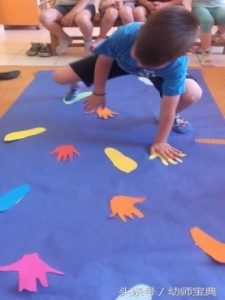Some Physical Activity that Promotes Brain Growth as We Enter the Second Phase of the COVID 19 Lockdown period
Some Physical Activity that Promotes Brain Growth as We Enter the Second Phase of the COVID 19 Lockdown period.
Physical activity is important for both the physical and mental development of children, especially during the first five years of life. With the progress of COVID 19 and the need for lockdown, parents are encouraged to engage their children in physical activities while at home. As this would build good habits that can last a lifetime.
Physical activities has countless benefits – but is there a correlation between physical activity and brain growth? We at Newfield schools would say a big Yes to this.
 Physical Activity – Brain Companion!
Physical Activity – Brain Companion!
- Researches have shown that learning basic movements could help to boost the brain as well as positively affect academic performances.
- Exercise increases blood flow to the brain, which is needed for heightened alertness and focus, which makes it easier for children to learn.
- Regular physical activity can “help develop important life skills, and boost self-esteem, motivation, confidence and wellbeing.
- It can strengthen/foster relationships with peers, parents, and coaches.” Our mission is to develop a GRIT MINDSET, and physical activity is clearly the first step to that.
5 Great Ways To Develop Effective Communication In Toddlers During The Lock Down
5 GREAT WAYS TO DEVELOP EFFECTIVE COMMUNICATION IN TODDLERS DURING THE LOCKDOWN Parents are usually shocked at the mention of communication for toddlers; they assume the gestures and cooing sound isn’t part of communication. Research has shown that appropriate communication between adult and toddlers help the toddler develop great communication skills. Communication skills are important in child development for the following reasons: • Teaching effective communication skills to children may help them to express themselves clearly and convey their feelings in a better manner. • Communication skills can facilitate learning and meaningful exchange of information with others. We encourage parents at Newfield Schools to carry out certain activities to help foster a broader communication skills in their toddlers. 1. Play Telephone This fun game can help enhance good listening skills in toddlers and can be played by kids of all age groups. We use this to get our toddlers talking. This is a beloved activity parents can use on their toddler. However, be aware of the radiation real phones carry and the dangers of it.
Ten Ways to Handle Tantrum
For some, the word tantrum is a new vocabulary, for others, a tantrum is not just an old word but a source of embarrassment, that has probably resulted in hurriedly leaving a public place or has led to series of apologies and suspicious stares.
A tantrum is an episode of extreme anger and frustration characterized by crying, screaming, and violent body motions, including throwing things, falling to the floor, and banging one’s head, hand and feet against the floor.
Tantrum, also called temper tantrums, can occur by the age of 15 months or even earlier, but are most frequent between the age of two and four. All children have them at some point , and active, strong-willed youngsters may have as many as one or two a week .Generally, tantrums are an expression of frustration, children may be frustrated by their inability to perform an activity they are attempting, such as buttoning a coat. Tantrums may also be an expression of frustration at the lack of control children have over their lives, such as at bedtime when children want to continue playing instead of going to bed.
Common problems
Having tantrums is a normal part of growing up, however, they are not socially acceptable behaviour. Consequently, the most common problems with tantrums are problems from the parents, the tantrums often takes place in public, which can be embarrassing and make them harder to deal with calmly. If the child actually hurts him or others or has very frequent tantrums, it may be a sign of behaviour problems, and the child should be assessed by paediatrician.


